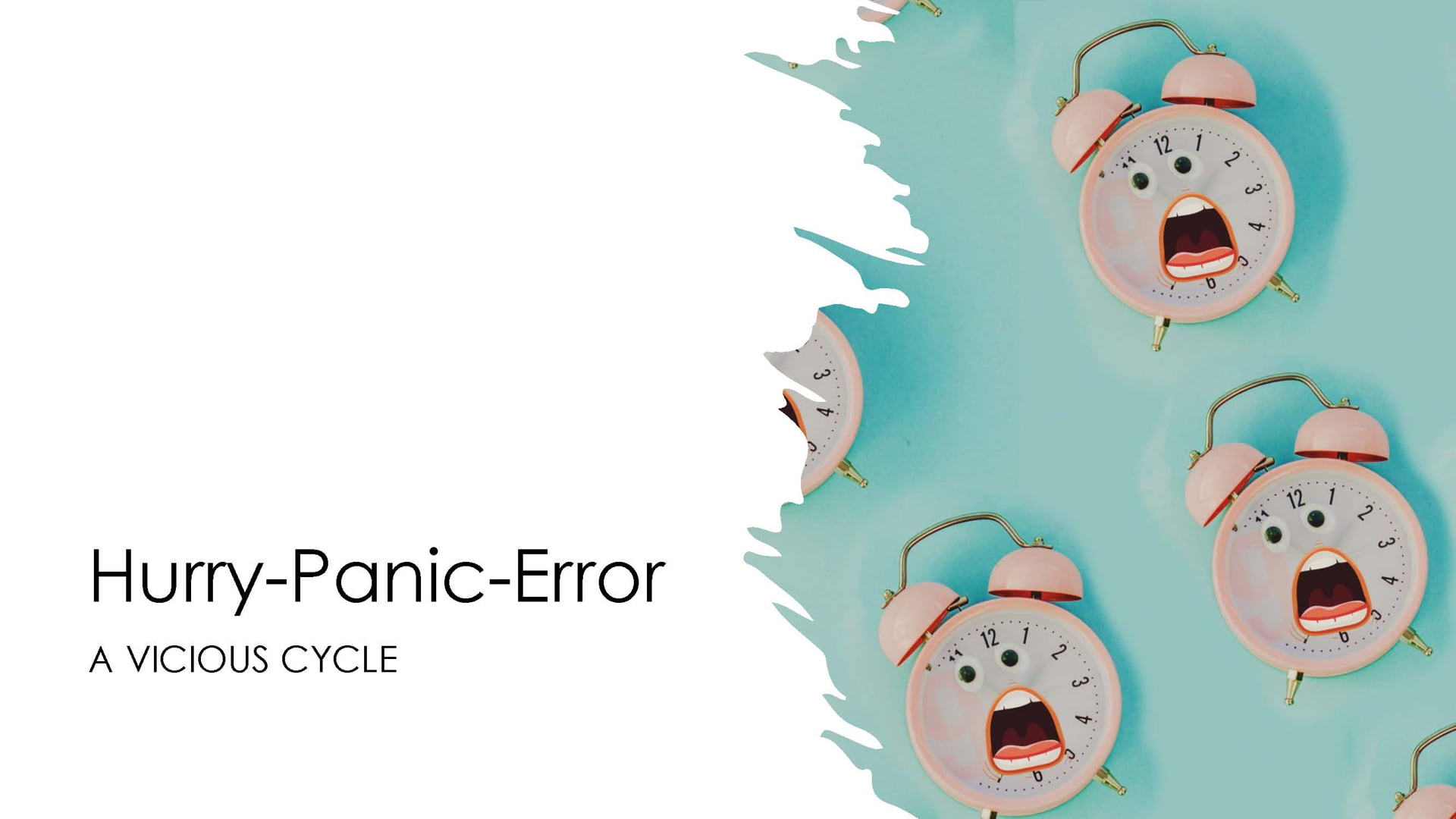Blocks to Role Competencies
Dear Readers, Welcome to SC Musings, Blog 25,
In this final Blog on Roles, we address Blocks to Role Competencies.
I chose this topic to help us identify, name and then deal with blocks to our role competencies. Usually when I propose something in sessions like role competency, the immediate question which props up is how?? Most of us look for techniques and quick fixes to build competencies in this fast paced digital world. The important question is why? Because, the answer to the why question brings meaning and depth to the issue addressed and often anchors the change in us.
This pondering brings us to one of the blocks to role competencies- quick fix solutions to building role competencies. Impulsive search for and application of quick fixes are usually due to the ‘Hurry up’ driver embedded in us. Driver behaviours (Kahler & Capers, 1974) are caused by internalised messages, known as drivers, injected by parents or parental figures.
‘Hurry up’ (p.32,33) is one of the messages which propel people to go on hurrying, mindlessly, often aimlessly too. Its an autopilot behaviour which goads us to keep on moving, performing faster and faster.

A typical example is one I recently encountered on a train from Chennai to Coimbatore. Nearly 30 minutes before the scheduled arrival in Coimbatore,, my compartment was bussing with activity- and quite a few passengers were at an exit gate. Out of the 2 exit gates, one was locked, so heightened panic started to build up. The ticket collector and train staff tried to pacify the agitators, politely requesting them to use the open gate. Loud voices forced them to come out with the reason- a passenger was having fits and throwing up in front of the other gate. This information did not satisfy the agitated ones, who demanded to let them pass- the silent firmness of the service providers, finally contained them. In this milieu, I was surprised with my reactions. I collected my luggage hastily and hurried to join the queue- and to my surprise, the train did not stop in 5 minutes as I had expected. It jugged on for another 15 to 20 minutes before coming to a complete halt. Hurriedly, I rushed out and waited for my driver outside for 15 minutes- while he had been waiting for me on the opposite platform.
As I key in this episode I smile and laugh at how I was caught up in the hurry-panic chain reaction mindlessly, becoming part of the herd. Thus, ““The "Hurry up" … driver invites a person to do things faster, talk rapidly or more quickly. The person, when under this driver influence, believes that he must do everything "right now." He may interrupt people, thus "hurrying them up" to finish their sentence, glance-at his watch frequently, or tap his fingers impatiently. When he is demanding others to hurry, he is under this "Hurry up" influence. (p.32).

I continue to discover that this driver behaviour forces errors, because we do not attend to the here and now reality. There are 4 other driver behaviours which I will address in later blogs. I chose this one because I believe from experience that it is our national inheritance- the hurry up driver, which impels us to live in the future driven by our past conditioning.

Intolerance closely follow hurry up as another huge block to role competency- yes, it is an almost identical twin of hurry up. At West Mambalam, where NG @ Chennai is situated, homes are close to one other, and sounds carry seamlessly across walls. After an initial shock and discomfort of being closer to neighbours than I am used to, I began enjoying the comfort of security and focusing on the space I exist and subsist in. My tolerance quotient is going up due to proximity, aided by the principle of live and let live.
Coimbatore is a totally different scene- at home and Nitya Gurukula, neighbours complain continuously about leaves falling into their spaces, sounds of us coughing, especially now when most of our household is down with cold and coughs.
Chennai trips with a simple lifestyle has taught me aplenty about bare necessities of life. It dawned on me how entitled I was!!
Entitlement is “the feeling or belief that you deserve to be given something such as special privileges (Britannica Dictionary, 2024).
Merriam Webster contains the following descriptions of entitlement:
“having or showing a feeling of entitlement.. spoiled. entitled children.. his entitled attitude/behavior.. leading an entitled life…
We are also the so-called entitled generation, … told by helicopter parents and the media, from the moment we exited the womb, that we could be "whatever we wanted" …— Jessica Bennett” (2024).
Life lessons from Chennai equipped me to be tolerant to sounds, smells, appearances, differences etc. etc. It’s just a beginning- have a long way to go, to expand my world shrunk by the sense of entitlement.

Coming to the final block on my list, dissatisfaction. This is quite a huge block to competency, though it does not appear to be so. The reason is that it leaves us feeling frustrated, with all the attendant feelings like guilt, anger, anguish, jealousy and the list is endless. These feelings are directed towards us or the ones close to us personally, professionally and or organisationally, compelling us to want, do, achieve more and some more.
The danger in this block dissatisfaction is that it wears the cloak of ambition, success, continuous improvement and the like, with a deep internal craving for more. Dissatisfaction also has social sanction and is condoned and is experienced globally.

The 3 blocks discussed above, namely hurry up, intolerance and dissatisfaction are internal and lay within the recesses of our consciousness, not easily accessible. It took me years to get a glimpse of them. Even a glimpse has brought immense changes personally and professionally, and organisationally, which I am waiting to share with you.
Dear Reader in our next Blog 26. We will move on to explore pausing, accepting and enjoying life in all its richness.

References
Kahler, T., & Capers, H. (1974). The Miniscript. Transactional Analysis Journal, 4(1), 26–42. https://doi.org/10.1177/036215377400400110
Entitlement, Brittanica: https://www.britannica.com/dictionary/entitlementEntitlement, Merriam Webster: https://www.merriam-webster.com/dictionary/entitled